COLLECTION: Creating an Ethical Community-Based Textile Movement
BY MEGANNE LIEBSCH | July 20, 2020
Molly Hemstreet started her textile factory with one sewing machine. A native of rural North Carolina, she had watched the textile industry here collapse, leaving behind scores of skilled but unemployed workers. Hemstreet envisioned a fresh start for the local textile industry—with jobs that paid fair wages and revitalized Appalachian textile craft.
Today, Hemstreet’s factory employs over 40 workers. It’s also part of a larger cooperative of textile mills in the region, which share Hemstreet’s vision of a just local economy. As part of their cooperative model, these manufacturers have developed a brand of sustainable textile products, called COLLECTION.
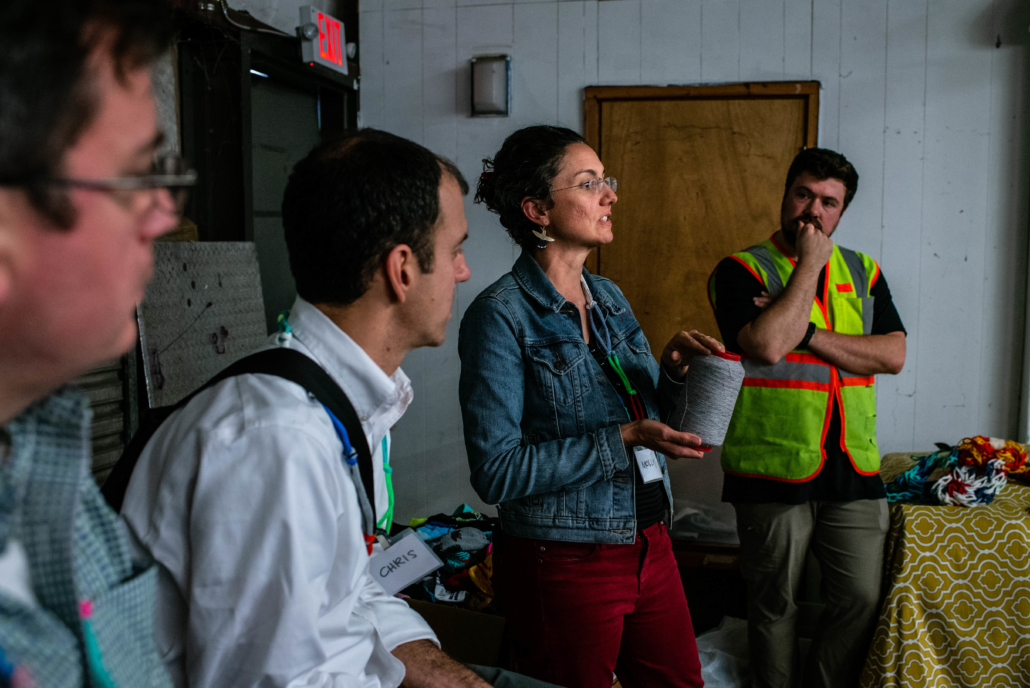
Molly Hemstreet (center) speaks with Jesuit network partners about her work with COLLECTION.
COLLECTION—which offers shirts, beanies, and rucksacks made by different partnering manufacturers—embodies the principles of Laudato Si’, Pope Francis’ groundbreaking encyclical on the environment: ethical labor, sustainable materials (using cotton from U.S. farming associations or local recycled fabric), and collaboration between factories and branding suppliers.
According to Hemstreet, COLLECTION is about “creating a movement. The products are just one part of what we see as a cultural change in consumption patterns. We want to build up a real revolutionary alternative to the current fashion industry.”
But what makes COLLECTION so “revolutionary”? What can their response to coronavirus teach us about building a more just and healthy society?
Step 1: Put people over profit
Maricela Lopez has worked on factory floors for most of her life. She describes her past experience at a chicken processing plant as violating and dehumanizing. But now, as a co-owner of a COLLECTION-affiliated textile factory called Opportunity Threads, she has the power to improve working conditions and support employee welfare.
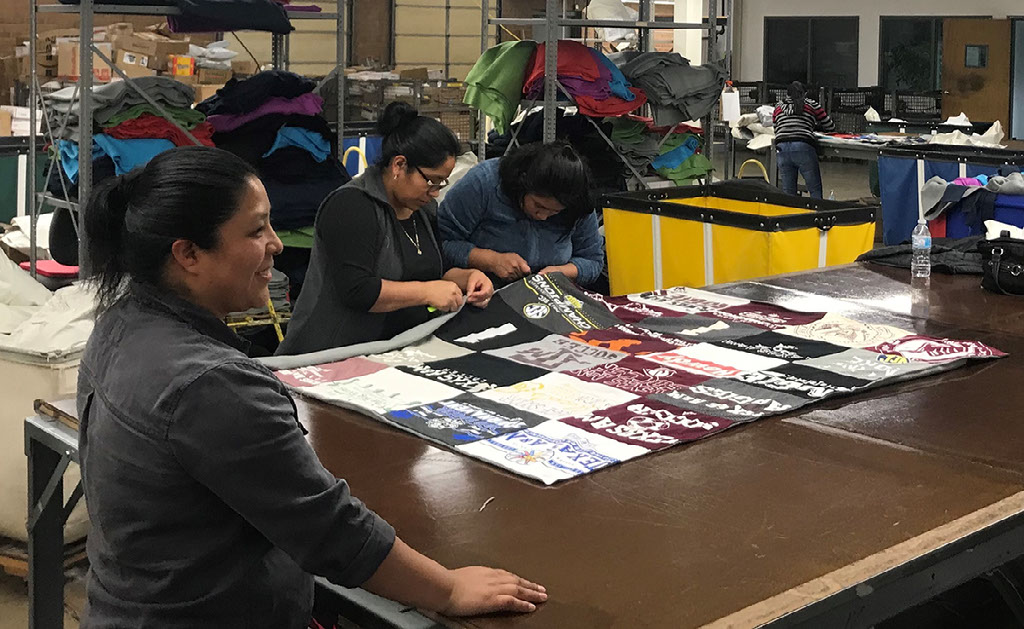
Maricela Lopez (foreground) shows off a t-shirt quilt (made for Project Repat) at Opportunity Threads, COLLECTION’s flagship worker-cooperative mill in Morganton, North Carolina
In many ways, coronavirus has heightened our collective awareness of unsafe working conditions and insufficient social assistance for low-income workers. Research shows that infection rates are higher among low-income communities, which lack access to healthcare or even adequate sick policies. These trends indicate a fundamental disregard for the rights of workers, especially those in poverty.
COLLECTION is committed to changing that model through community-based industry.
“When you’re coming from a place where your rights have been violated, as a leader you have a choice—do the same things that were done to you or do better,” says Lopez.
“We’re looking to help people—not just create wealth but use it for the benefits of families and the community,” says Hemstreet, who also founded Opportunity Threads.
Workers here are paid a living wage, and at the end of the year, they all receive a dividend from the factory’s surplus profit (provided there is a surplus). If they meet certain criteria, workers are invited to become part of the ownership structure. As owners, they invest about $25 of each paycheck into the factory until their buy-in amount is met, and through seats on the factory’s board, they steer key business decisions. This model benefits all workers, through a culture of shared profitability in the business, strong benefits, and open space for voicing concerns and ideas. Currently, Opportunity Threads has six owner-workers.
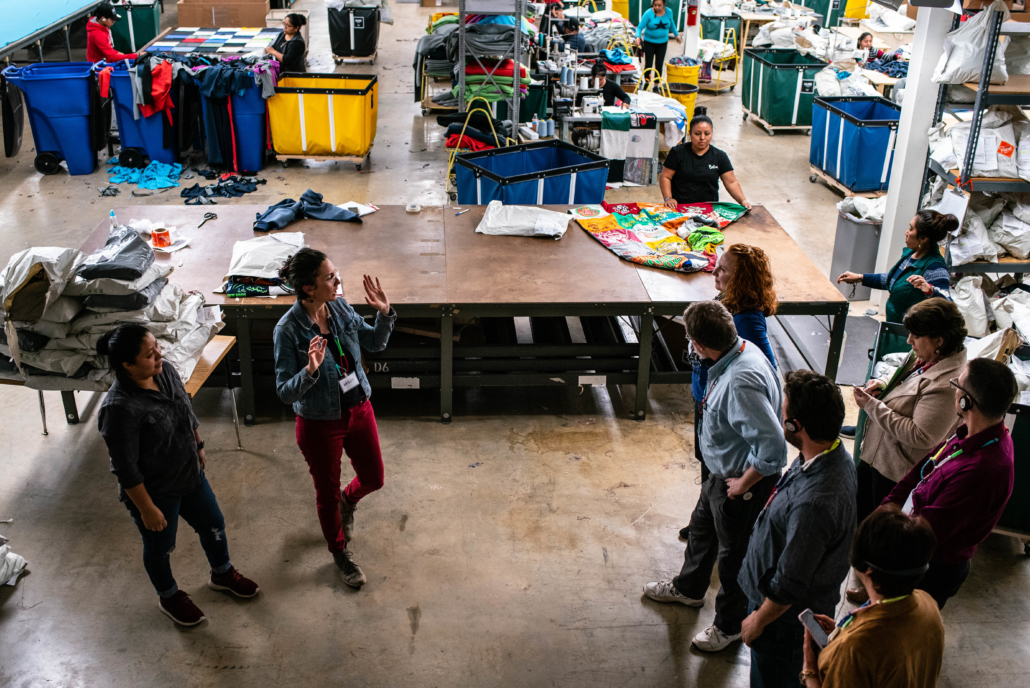
Molly Hemstreet (second from left) started Opportunity Threads with one sewing machine.
“It is incredible that [we] have gathered many companies together and have put many people back to work,” Lopez says of COLLECTION’s response to the pandemic. “Maybe at the beginning the difficult part was figuring out how to do it. But, we are now well on the road where we need to be.”
Ethical Labor in the Textile Industry
Part of what makes these mills radical is how they reject industry norms. Globally, textile companies operate with precarious and destructive business models that prioritize profit over people. For most clothing brands, a worker’s wage only accounts for 1 to 3 percent of the total cost of the garment. Workers are routinely paid under the local living wage and forced to work grueling hours in unsafe factories. The rise of fast fashion—the rapid, cheap mass production of clothes—has increased demand but decreased wages, and it has encouraged a global “throwaway culture” that sees clothes and the people who make them as disposable.
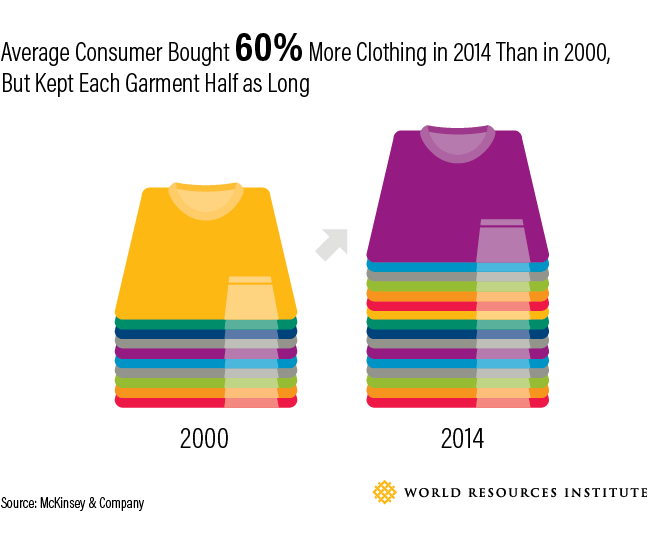
Clothing purchases have skyrocketed in the last two decades. So has clothing waste.
“In the era of globalization, consumer goods have become shrouded in dubious mystery,” says Cardozo. “The big clothing brands, for example, spend far more energy marketing their social-responsibility programs than on the programs themselves. As a result, consumers don’t get to know where the raw materials come from or who manufactures the goods or under what conditions. COLLECTION turns this model on its head with total supply-chain transparency to back up their claims about sustainability and worker rights. This brings storytelling back to production, making commodities into ‘crafts’ again.”

Step 2: Build a Sustainable “Circular Economy”
COLLECTION-affiliated manufacturers aim to transform the textile industry into a local “circular” economy. Circular economies are designed to build healthy economic, social and natural systems.
In many ways, the concept of a circular economy is a direct answer to integral ecology and its call for social and ecological conversion. For Opportunity Threads and its sister textile factories in North Carolina, a circular economy both upholds the dignity of workers and prioritizes environmental sustainability.
Historically, North Carolina was a hub for furniture and textile production—due to the local Appalachian craft tradition and industrialization. In the last 40 years, many of those jobs moved overseas, leaving skilled workers without gainful economic opportunities.
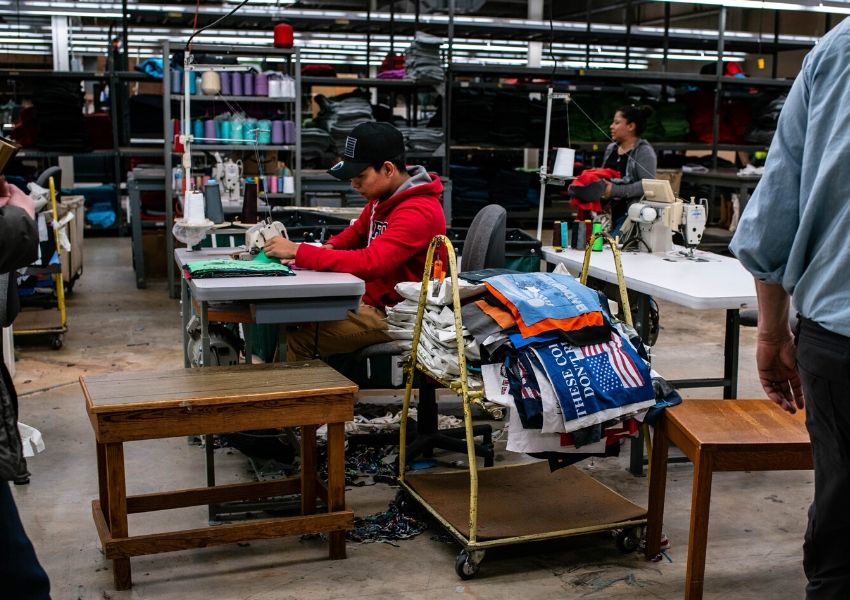
A worker at Opportunity Threads sews T-shirt quilts. The scraps will be up-cycled into new yarn.
The Industrial Commons and COLLECTION are revitalizing this small, mountainous corner of Appalachia with a radically different approach to the industry. Their circular economy operates through a collective business model: sharing resources among factories, empowering workers through worker-ownership, educating the community on skills-building and entrepreneurship, and recycling and reusing materials.
With unemployment hovering around 13 percent nationally and over 2.8 million rural Americans without work as of May 2020, this economic revitalization is essential.
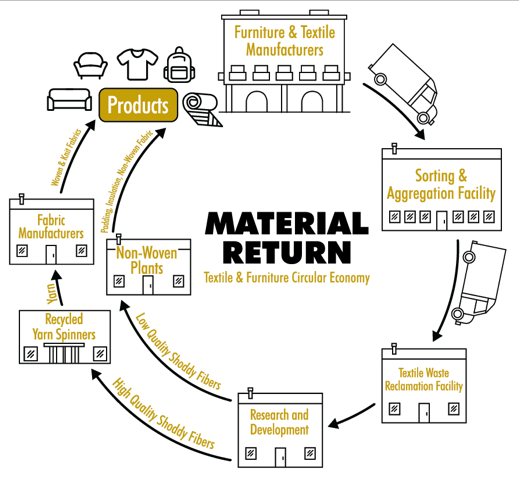
A circular economy in the textile industry is a closed loop of collaboration between firms that constantly recycles and recreates fibers for different purposes.
This system is a prime model of integral ecology. Every level of its organization is informed by a desire to create a healthy and prosperous community—economically, socially, and ecologically.
Get involved
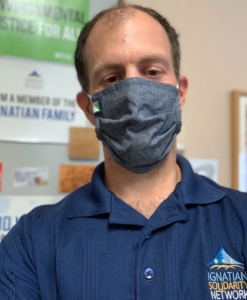
Christopher Kerr, executive director of the Ignatian Solidarity Network, wears a Solidarity mask, created for ISN by COLLECTION.
Before Covid-19, Jesuit institutions and organizations, including the Ignatian Solidarity Network, Boston College High School, Creighton University’s Center for Service and Justice, Georgetown University Alternative Breaks Program, and Scranton Prep, sourced merchandise through Ethix Merch, a partnering promotional merchandise supplier, and COLLECTION. Ethix Merch hopes to build on and expand these partnerships with custom-branded face masks, as well as traditional promotional and branded merchandise.
Schools, organizations, and other institutions can use their purchasing power to support ethical and sustainable practices by contacting: [email protected]. To keep up with COLLECTION and this thriving ecosystem follow @createtheCOLLECTION on Instagram.
[Editor’s Note: A version of this story was originally published by the Jesuit Conference Office of Justice and Ecology.]
MegAnne Liebsch is the communications manager for the Office of Justice and Ecology of the Jesuit Conference of Canada and the United States. She holds a master’s degree in media and international conflict from University College Dublin and is an alumna of La Salle University. She is based in Washington, D.C.

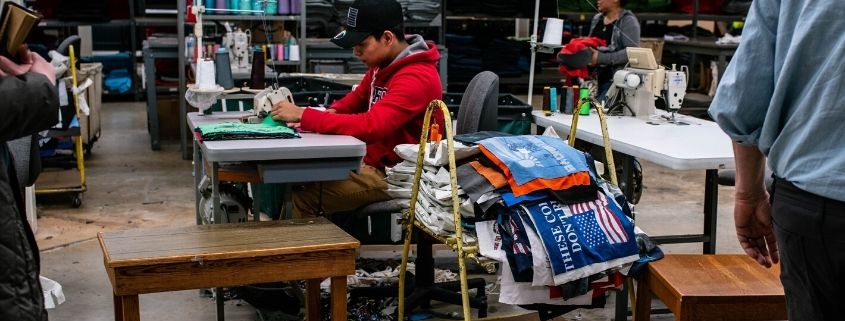
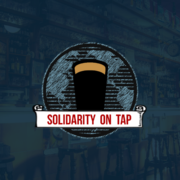
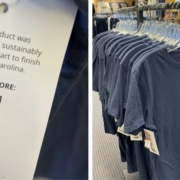
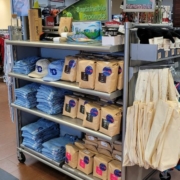
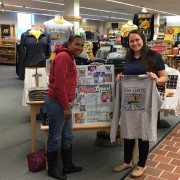
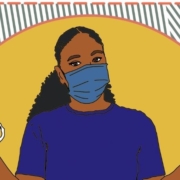
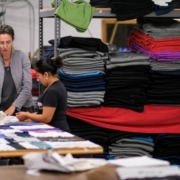

Work offers dignity. Circular Economy is the way forward.